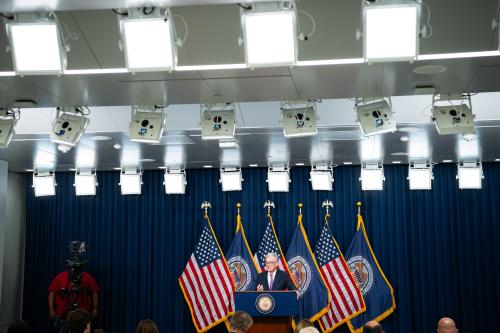So does it matter exactly when the Federal Reserve gets around to raising interest rates or does it matter more how rapidly it raises them?
Federal Reserve Chair Janet Yellen and her colleagues say you should pay less attention to the timing of the first interest-rate increase and more attention to the expected path of rates.
Brookings’ Donald Kohn, former vice chair of the Federal Reserve Board agrees: “Exactly when [interest rates] increase isn’t all that important—if September, December. That’s not very important. What’s important is they have to start rising, and what’s important is the track for interest rates, the total path of interest rates once they start to increase.” So does Jon Faust, an economics professor at Johns Hopkins University.
But Julia Coronado, chief economist of Graham Capital, disagrees, arguing that the timing of the liftoff could tell us a lot about how the Fed interprets incoming data and uses it to set interest rates.
If the Fed raises rates in September, that might suggest it does not weight heavily the weak economic news from China and the recent financial-market volatility. If it holds off, the Fed could be sending the opposite signal: That the Fed is a bit worried about the near-term economic outlook, or at least is worried enough to see what unfolds in the next couple of months.



Commentary
Why the timing of the Fed’s interest rate liftoff could matter
September 4, 2015